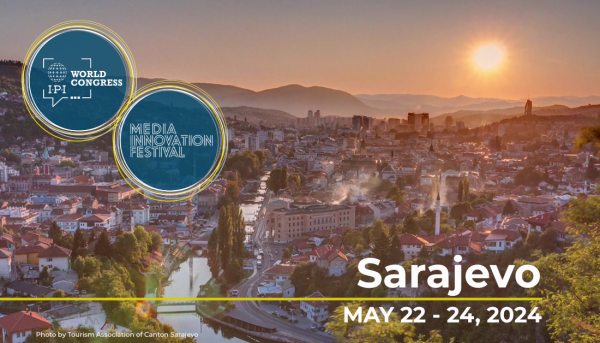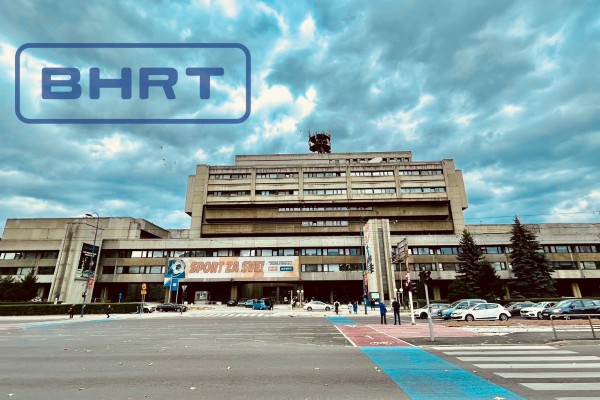The European Court of Human Rights (ECHR) has postponed a hearing on a complaint by an Italian TV broadcaster which argued that the Italian government had breached its rights by not allowing the station to take to the airwaves.
The Court announced on 12 May that a public hearing in Centro Europa 7 S.R.L. v. Italy had been postponed from 25 May to an as-yet undetermined date. Counsel for the broadcaster, Ottavio Grandinetti, told IPI that the Court accepted a request by the Italian government to postpone the hearing because new documents had been brought to its attention. However, such additional acts were already known to the Italian authorities, as they had been either previously filed in national court cases or had been issued by the state itself.
Europa 7 argued in a complaint filed in July 2009 that the Italian government had breached its rights by not allowing it to go on the air, even though the Italian Communications Ministry had granted Europa 7 that right in October 1999.
The case will be tried in reference to the following articles of the European Convention on Human Rights: Art. 10 on freedom of expression; Art. 14 prohibiting discrimination, Art. 6 on the right to a fair trial, and Art. 1, Par. 1 of the additional protocol to the Convention and related to the right to property. The Court will declare a verdict on Centro Europa 7’s demand for over two billion Euros from Italy in damage compensation for the state’s alleged failure to respect the company’s right to broadcast for 11 years.
“Several courts have already established that Europa 7’s rights have been violated by the Italian state, which we also believe to be the case,” IPI Director Alison Bethel McKenzie said. “If the European Court confirms such a violation, an adequate and prompt compensation for damage inflicted upon the station will not only send a strong message to the Italian authorities but also offer the broadcaster the necessary economic strength to be able to contribute to pluralism of information in the country.”
In the complaint, the applicant also claimed that the existing duopoly of the Italian television market violates the principles of freedom of expression, because the private broadcaster Mediaset – owned by the family of Prime Minister Silvio Berlusconi – is being treated preferentially, the Italian news agency ANSA reported.
In April, IPI completed a follow-up visit to Italy, during which it examined challenges to pluralism in Italy’s TV broadcasting sector resulting from the state’s switchover to digital technology.
There have been significant delays in the country’s digitalization process, which was originally to be finalized by 2006. In May of that year, there were around 30 national channels as well as several regional and local ones operating digitally. Currently, approximately half of Italy’s 20 provinces and just over half the country’s population have access to digital television. The deadline for the complete switchover has been put off to December 2012, which is also the deadline imposed by the European Commission on all EU member states.
The state has yet to determine which new audiovisual providers will be able to operate alongside the current ones, which will anyway be at an advantage compared to the newcomers. IPI believes that, in order to encourage pluralism, the criteria for the decision should favour new entrants, rather than the incumbent ones.
Berlusconi’s Mediaset Group has dominated the Italian private audiovisual sector since the 1980s and today it controls around 45 percent of television viewership in the country and over half of total TV advertising sales, according to a report by the International Federation of Journalists (IFJ).
In 1999, Centro Europa 7 won a contest and was soon granted a license to set up a new TV station in Italy. However, it was notified by the Ministry of Communications that it could not receive an operating frequency as there were no free national ones at that point in time. The issue arose from the fact that in 1997 Mediaset failed to conform to an anti-concentration law, which demanded that the group free one of its three national terrestrial frequencies. As a result, its third channel, Rete 4, was supposed to start broadcasting either via cable or satellite. The 1997 Act, however, did not set a deadline for the relinquishment of the over-quota frequencies.
In 2002, Italy’s Constitutional Court was called upon to assess the problem and it claimed that the failure to pinpoint such a deadline was unconstitutional in that the Constitutional Court in 1994 set a 20 percent limit for TV market concentration. As a result, the court concluded that Mediaset should free its third national frequency by the end of December 2003. Several days before the new deadline the Berlusconi government adopted emergency legislation that put it off indefinitely.
Another development of the same year was the introduction of Law Nr. 112/ 2004, known as the Gasparri law, after the communications minister, Maurizio Gasparri, who drafted it. The draft law was proposed as a solution to the high concentration in the country’s broadcasting sector, and Parliament approved it in the summer of 2003.
However, the then president Carlo Azeglio Ciampi sent the draft law back to Parliament, stating that it did not sufficiently respect the 2002 decision by the Constitutional Court. The following year, the draft law was amended with only minor changes to the text and it became law in May. The Gasparri law officially extended the deadline for handing over the over-quota frequencies until the complete transition to digital broadcasting in 2012.
In 2004, Centro Europa 7 appealed to the Regional Administrative Court in Lazio demanding compensation for the time during which they have been unable to operate. That court rejected the appeal on the grounds that Europa 7 had a “legitimate expectation” to acquire a frequency, but not the immediate right to broadcast.
In July the following year, the Council of State, Italy’s highest administrative tribunal, referred the case to the European Court of Justice, which found a violation of EU law because Europa 7 could not broadcast due to lack of a frequency. Consequently, the TV station was granted a frequency, whose technical qualities however did not allow for nation-wide broadcasting.
The Council also granted the broadcaster compensation of one million Euros, an amount that Europa 7’s founder, Francesco Di Stefano, in a meeting with IPI, defined as “ridiculous” considering the overall damage caused by the station’s inability to operate for so many years.
The European Court of Human Rights is expected to set a new date for the public hearing of the case soon.


